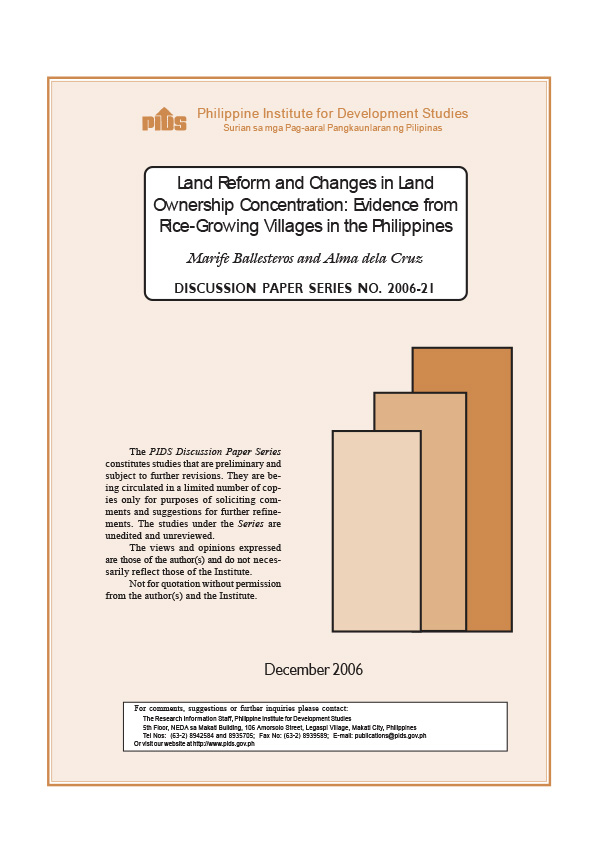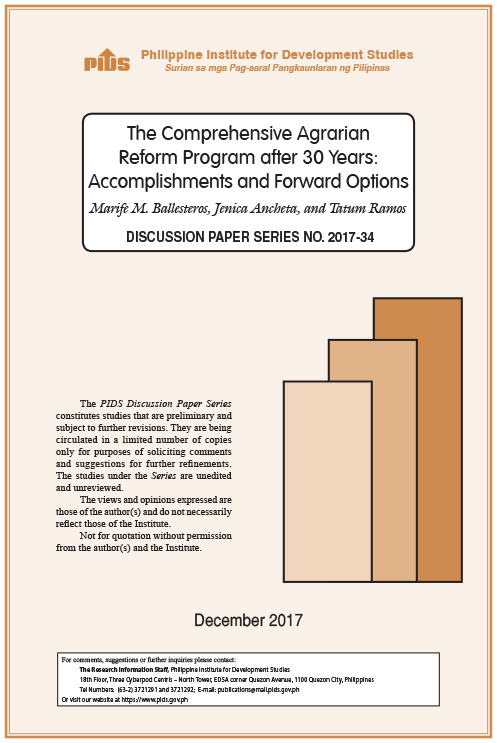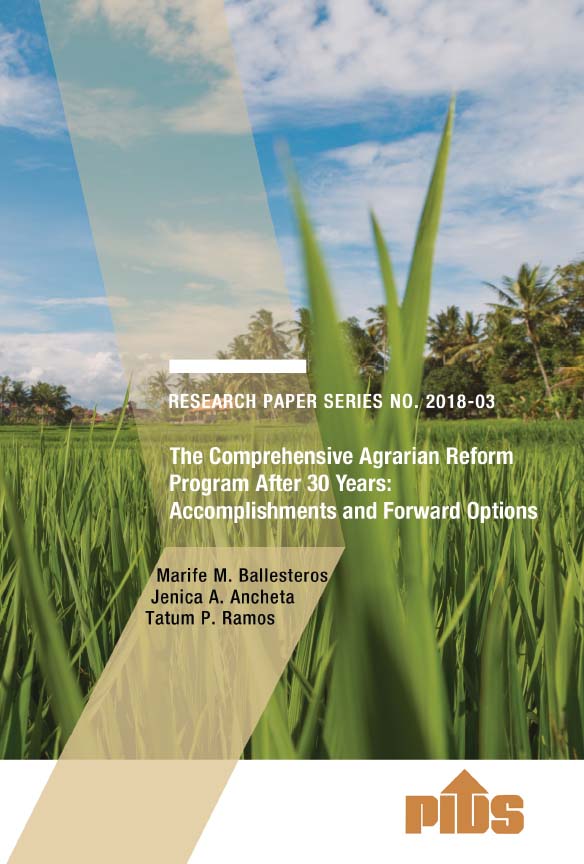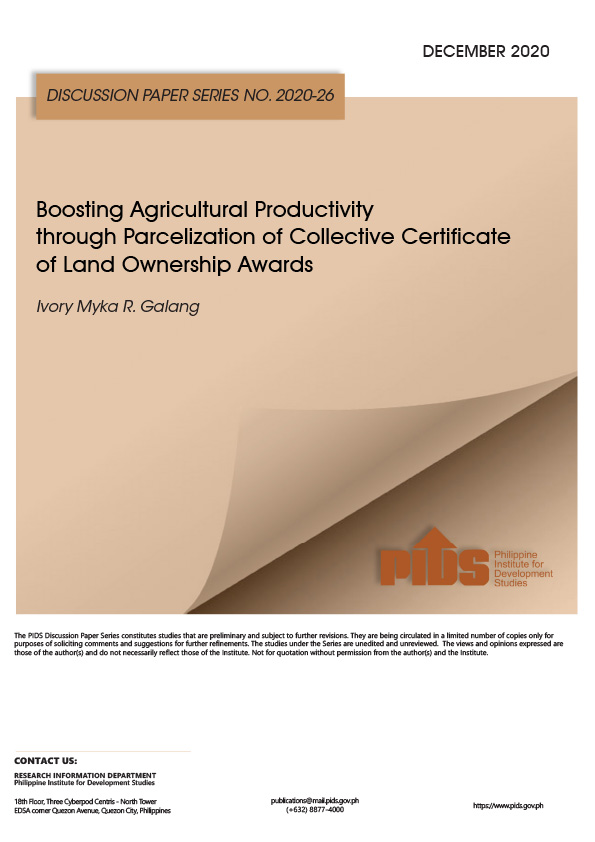This paper examines the effect of land reform and land transfer actions of farmer beneficiaries on land ownership concentration. A case study of two rice-growing villages was used to track down ownership changes over a period of time. Land reform has succeeded in the break up of huge estates in rice-growing villages but has not effectively improved land ownership concentration due to evasions tactics of landlords who have retained a significant portion of lands to the family through land schemes that are apparently legitimate under the land reform laws. Land transfer actions of farmer beneficiaries have not necessarily worsen the current land ownership concentration but in the absence of progressive land tax, these actions can lead to widening land concentration.
Citations
This publication has been cited 3 times
- Fabella, Raul V.. 2014. Comprehensive Agrarian Reform Program (CARP): Time to let go. Philippine Review of Economics, 51, no. 1, 1-18. (via RePEc)University of the Philippines School of Economics and Philippine Economic Society.
- Fabella, Raul V.. 2014. Comprehensive Agrarian Reform Program (CARP): Time to let go. UP School of Economics Discussion Papers 201402. University of the Philippines School of Economics.
- World Bank. 2009. Land reform, rural development, and poverty in the Philippines: Revisiting the agenda. World Bank Publications - Reports 18545. The World Bank Group.













